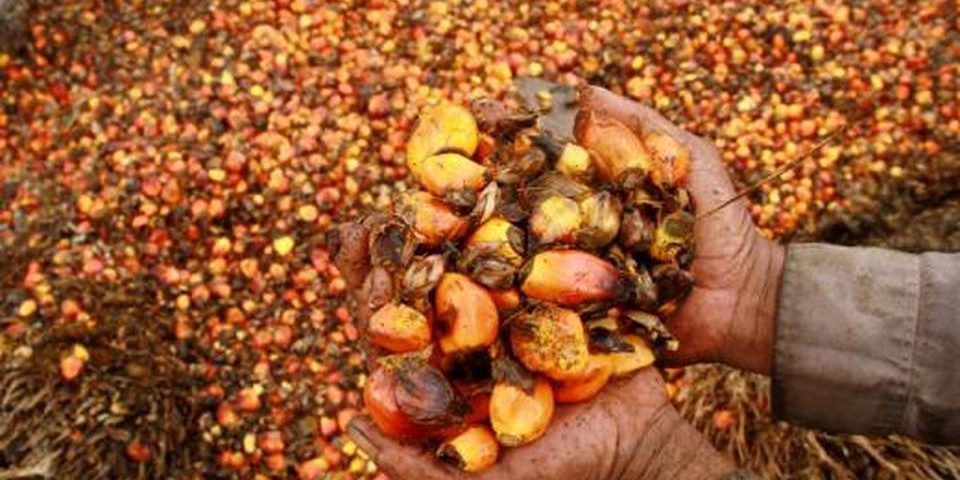In response to the sluggish national palm oil production, the company has adopted a strategy focused on intensification and innovation. The challenge of increasing productivity is becoming more complex due to various pressures from area restructuring policies.
Over the past two years, national palm oil production has stagnated and even declined. According to data from the Central Statistics Agency, the area of oil palm plantations in 2023 reached approximately 15.93 million hectares, an increase from 14.33 million hectares in 2018. However, production growth has not kept pace with the expansion of planting area, largely due to the low productivity of aging trees that have not undergone rejuvenation.
In 2024, national palm oil production is projected to be 52 million tons, a decrease from 54 million tons in 2023. Exports are also expected to decline to 29 million tons, down from 32 million tons in the previous year.
Eddy Martono, the Chairman of the Indonesian Palm Oil Entrepreneurs Association (Gapki), noted that the decline in palm oil production is attributed to several factors, including the slow rejuvenation of palm oil plantations. This issue has been a persistent problem for at least the last five years and remains a significant threat in 2025. Eddy emphasized the need for replanting oil palms in community gardens to enhance production. The company has maintained a palm oil replanting program, supporting farmers by replanting at least 4-5 hectares each year.
Despite these efforts, records from Gapki indicate that around 3 million hectares of community palm oil plantations require rejuvenation or replanting. Eddy remarked, “If the trees are old, no matter how many times they are fertilized, they will not perform optimally, leading to higher costs than the inputs provided.”
The replanting of palm oil trees are viewed as a method of land intensification without the need for broader expansion, as demonstrated by PT Astra Agro Lestari Tbk. This palm oil company is rejuvenating its plantations using what they consider superior seedlings.
Tingning Sukowignjo, the Chief Financial Officer and Corporate Secretary of Astra Agro Lestari, stated that enhancing plantation productivity is essential in a stagnating palm oil industry. To achieve this, the company is innovating with technology and collaborating with researchers.
Tingning explained that Astra Agro is utilizing superior seeds developed by its Research and Development (R&D) team, which has partnered with the National Research and Innovation Agency (BRIN) and esteemed universities in Germany and the UK, as well as several domestic institutions.
In collaboration with BRIN, Astra Agro is also developing tissue culture techniques to produce high-quality palm oil seedlings clonally. This clonal method allows for vegetative propagation, meaning new plants will have identical genetic traits to the parent, using parts of the plant such as shoots, stems, or roots.
According to the Palm Oil Research Center (PPKS), palm oil productivity can increase by 20-25% compared to conventional plants when developed through tissue culture. So far, the planting of superior clones from tissue culture has reached over 10,000 plants at one of Astra Agro’s plantations in Central Kalimantan.
Additionally, Tingning revealed that the company has launched three superior plant varieties—AAL Nirmala, AAL Sejahtera, and AAL Lestari—that promise better productivity, and the initial results have been positive.
Astra Agro’s 2024 financial report released on the Indonesia Stock Exchange (IDX) revealed that the company recorded a net income of Rp 21.82 trillion, a 5.2% increase from Rp 20.75 trillion the previous year. Crude palm oil (CPO) sales accounted for 61.26% of total net revenue, an increase from 58% the prior year. Sales of kernels and their derivatives also grew to 7.49%, while refinery products contributed 31.25%.
Throughout 2024, Astra Agro’s operational margin improved quarter-on-quarter, rising from 12.1% in Q1 to 24.1% in Q4, along with a consistent increase in the net profit margin. This positive performance was bolstered by significant market demand, even amid stagnation in national CPO production.
Tingning emphasized, “We are committed to maintaining healthy financial performance while implementing sustainable business practices. We remain optimistic about facing future challenges and are dedicated to continuously adding value for our shareholders while contributing to the national economy.”
Regulatory Pressures
The government is currently working on enhancing the management system of oil palm plantations, particularly those within forested areas, which include both company-owned and community-owned plantations. This restructuring is being conducted under the supervision of the Forest Area Order Task Force.
Source: Kompas
Disclaimer
This article may contain copyrighted material, the use of which may not have been pre-authorized by the copyright owner. This material is made available for the purpose of giving information and knowledge. The material contained on the Astra Agro website distributed without profit. If you are interested in using copyrighted material from this material for any reason that goes beyond ‘fair use’, you must first obtain permission from the original source










